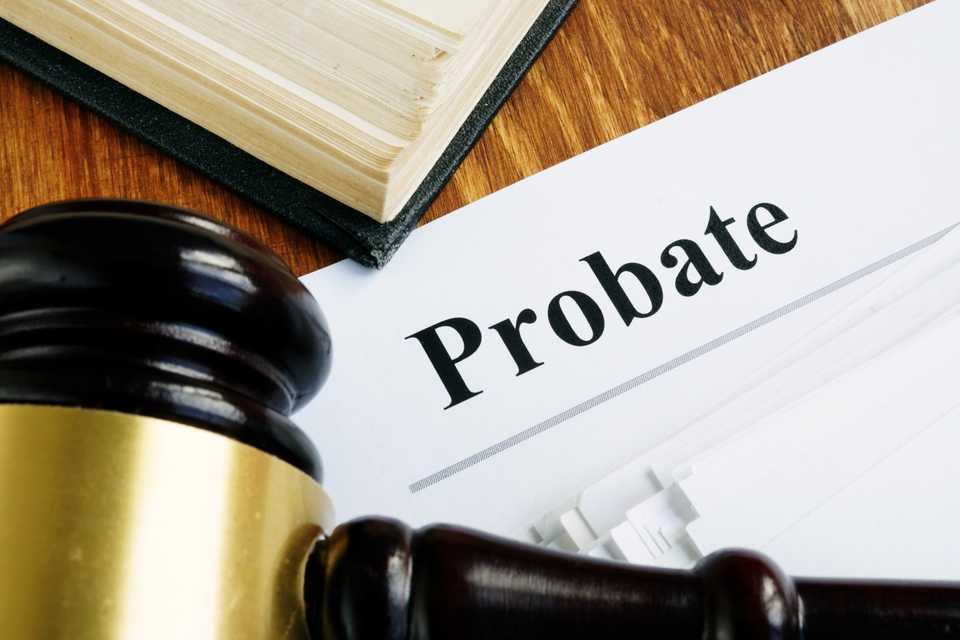Navigating the complexities of settling an estate in Ontario can be both a challenging and emotionally taxing experience for the family.
Hiring an estate lawyer is often essential to ensure that the estate is managed and distributed according to the deceased’s wishes, while also complying with Ontario’s legal requirements.

However, many individuals are uncertain about the steps involved in settling an estate in Ontario and what they might expect to pay for these legal services.
In this article, JuriGo provides insights on how to settle an estate in Ontario and discusses the average cost of hiring an estate lawyer in the province.
How to Settle an Estate in Ontario?
Settling an estate in Ontario is a significant responsibility that requires careful attention to detail. Whether you're an executor or a beneficiary, understanding the process is crucial to ensuring the deceased's wishes are honoured and all legal obligations are fulfilled. Below are the essential steps to effectively settle an estate in Ontario:
Obtaining the Will and Appointing an Executor
The first step in settling an estate is locating the deceased’s will. This document is usually stored in a secure place, such as a safety deposit box, with a lawyer, or at the deceased’s home. The will outlines the estate plan, detailing how the estate should be managed and distributed, making it critical to locate this document promptly.
Executor's role:
The executor named in the will has the legal authority to manage the estate. Their duties include applying for probate, inventorying assets, paying debts and taxes, and distributing the estate according to the will's instructions. If no executor is named, or if the named executor cannot serve, the court may appoint an alternate executor.
If the deceased died intestate (without a will), the estate will be distributed according to Ontario's Succession Law Reform Act. In such cases, the court will appoint an administrator, typically a close relative, to manage the estate.
Secure Property, Assets and Funeral Arrangements
The executor should take immediate steps to safeguard the deceased's property and assets. This includes securing the residence, protecting valuables, and notifying banks and financial institutions to temporarily freeze accounts.
Arranging the funeral is a priority, even though it is not directly related to the estate settlement. The executor should first determine whether the deceased had any pre-arranged funeral plans or insurance policies that cover funeral expenses.
If such plans exist, the executor should follow the instructions outlined, which may include contacting a specific funeral home or carrying out particular wishes expressed by the deceased.
Legal Notifications
The executor must notify Service Canada to cancel the deceased’s Social Insurance Number, health card, and passport. This involves providing Service Canada with the necessary documentation, such as the death certificate. This action helps prevent identity theft and ensures that all benefits and official records are properly adjusted.
Additionally, the executor must inform the Ontario government to update property records and other legal documents. This step is crucial for ensuring that estate administration proceeds smoothly and without legal complications.
Applying for a Certificate of Appointment (Probate)
Applying for a Certificate of Appointment, commonly known as probate, is a legal process where a court validates a will, granting the executor the authority to manage and distribute the deceased’s estate according to the will’s terms.
Probate is typically necessary when the estate includes significant assets such as real estate or large financial holdings, or when the estate is complex. For smaller estates or those with assets held jointly that pass directly to the surviving owner, probate may not be required.
Probate process :
To begin the probate process, the executor must file an application with the Ontario Superior Court of Justice. This involves submitting the will, the death certificate, and any other required forms. Additionally, a fee based on the estate’s value must be paid when filing the application.

During the probate process, complications can arise, such as challenges to the will's validity or disputes among beneficiaries. These issues can make the process lengthy and complex. In such cases, it is advisable to seek legal advice to address disputes and ensure the estate is administered correctly.
Challenges can arise if the will is contested or if there are disputes among beneficiaries, which can make the probate process lengthy and complicated. In such situations, seeking legal advice is highly recommended.
Inventorying the Estate
Once probate is granted, if required, the executor must identify and value all the assets and liabilities of the estate.
Identifying and valuing assets:
The executor must compile a comprehensive list of the deceased's assets, including real estate, bank accounts, investments, personal property, and any other valuable items. It is important to locate life insurance policies, retirement accounts, or other financial instruments that may not be explicitly mentioned in the will.
Some assets, such as real estate, may require professional appraisal to determine their market value. The value of bank accounts and investments should be confirmed as of the date of death.
Protecting assets:
During the settlement process, the executor should take steps to protect the estate’s assets. This may include maintaining insurance on properties, managing investments, and ensuring that perishable or valuable items are properly stored.
Handling Tax
The executor is responsible for filing the deceased’s final income tax return. This includes reporting all income earned up to the date of death and claiming any relevant deductions or credits. For estates with complex financial matters or if the deceased owned a business, it may be necessary to seek assistance from a professional accountant to ensure accurate filing.
In Ontario, there is no specific estate tax. However, the estate must settle any income taxes owed by the deceased. If the estate itself earns income during the settlement process, the executor may need to file additional tax returns to address this income.
Obtaining a clearance certificate:
Before distributing the estate to beneficiaries, the executor should obtain a Clearance Certificate from the Canada Revenue Agency (CRA). This certificate verifies that all outstanding taxes have been paid, protecting the executor from personal liability related to unpaid taxes.
Distributing the Estate
Once all debts and taxes are settled, the executor can proceed with distributing the remaining assets to the beneficiaries.

The will typically specifies how the estate should be divided among beneficiaries, and the executor must follow these instructions closely. If the will includes complex provisions, such as the establishment of trusts or the allocation of specific items, these must be handled according to legal standards.
Special considerations:
If beneficiaries include minors, their share of the estate may need to be held in trust until they reach the age of majority. In cases where the will is unclear or where there is ambiguity, the executor may need to seek legal guidance to interpret the deceased’s intentions.
Finalizing the Estate
The final stage involves completing all remaining administrative tasks and officially closing the estate. The executor should provide a final accounting to the beneficiaries, detailing all transactions made on behalf of the estate. This includes payments for debts, taxes, and the distribution of assets. Beneficiaries should be given an opportunity to review and approve this accounting.
A final accounting may also be required by the court, particularly in cases where probate was involved or where the estate was complex. The executor must ensure that all records are complete and accurate before submitting them.
Closing the estate:
Once all assets have been distributed and all obligations fulfilled, the estate can be officially closed. The executor may need to provide a final report to the court and obtain a discharge from their duties. The executor should also ensure that any remaining accounts or financial instruments are closed and that all records are safely stored.
Settling an Estate in Ontario: Why an Estate Lawyer is Essential?
Managing the estate of a deceased loved one is a significant responsibility that comes with its own set of legal challenges. In Ontario, the probate process can be particularly intricate, involving various legal requirements that must be meticulously followed to ensure that the estate is settled in accordance with the deceased's wishes.
Given these complexities, it is crucial to seek the assistance of an experienced estate lawyer to guide you through the process.
An estate lawyer plays a pivotal role in helping executors and beneficiaries navigate the legal landscape of estate management. The lawyer’s expertise ensures that all legal obligations are met, minimizing the risk of errors that could lead to costly disputes or delays.
The Role of an Estate Lawyer in Ontario :
| Lawyer’s responsibilities | Explanation |
|---|---|
| Explaining legal obligations | Ontario’s estate laws are detailed and sometimes difficult to interpret without legal training. An estate lawyer helps executors understand these laws, ensuring that they fulfill their duties correctly. This includes everything from filing the appropriate court documents to ensuring that taxes are accurately calculated and paid. |
| Protecting the rights of beneficiaries | Beneficiaries and heirs often have questions or concerns about their entitlements. An estate lawyer provides clarity, helping them understand their rights and what they can expect from the estate. This guidance is essential in preventing misunderstandings that could lead to disputes. |
| Dealing with missing or unknown assets | Another challenge in estate settlement is locating all of the deceased's assets, which may include bank accounts, properties, or investments in different jurisdictions. Executors may face difficulties in identifying and valuing these assets, particularly if they were not clearly documented.An estate lawyer can assist in conducting a thorough search for missing or unknown assets. This may involve working with financial institutions, searching for public records, and consulting with professionals to track down assets that were not initially identified. |
| Managing complex assets | Estates that include businesses, international assets, or other complex holdings require specialized knowledge and careful management. These assets often involve additional legal considerations, such as compliance with foreign laws, tax obligations, and valuation challenges, making the assistance of an estate lawyer crucial. |
| Handling disputes among beneficiaries | Disputes among beneficiaries are one of the most common challenges in estate settlement. These disputes can arise for various reasons, such as disagreements over the distribution of assets, questions about the validity of the will, or concerns regarding the deceased's mental capacity at the time the will was executed.An estate lawyer can act as a mediator, helping to resolve disputes amicably without resorting to litigation. By providing clear legal guidance, the lawyer can assist in finding solutions that satisfy all parties involved.If disputes cannot be resolved through mediation, an estate lawyer can represent the executor or beneficiaries in court, ensuring that their rights are protected. |
The Risks of Handling an Estate Without Legal Assistance!
Settling an estate without an estate lawyer can lead to a host of problems. Errors in filing documents, misunderstanding tax obligations, or mishandling the distribution of assets can result in delays, financial losses, and legal disputes.

Furthermore, without the guidance of a lawyer, executors may unknowingly breach their fiduciary duties, exposing themselves to personal liability.
Given the potential complications, it’s clear that hiring an estate lawyer is not just advisable, it’s essential! The lawyer’s expertise not only helps you avoid mistakes but also ensures that the estate is settled efficiently, respecting the wishes of the deceased and the rights of the beneficiaries.
Understanding the Cost of Estate Lawyers in Ontario
When managing an estate in Ontario, it’s essential to be aware of the potential legal fees involved. The cost of hiring an estate lawyer can vary depending on several factors, including the size of the estate, its complexity, and whether there are any disputes among beneficiaries.
Here’s a comprehensive look at what to expect when engaging an estate lawyer in Ontario :
Flat Fees for Simple Estates
For straightforward cases, especially when the estate is valued under $50,000 and involves only one beneficiary, legal fees are generally lower. In Ontario, you can expect to pay around $1,500 plus tax for legal services in such cases.
This fee typically covers consultations with the lawyer, reviewing and drafting necessary documents, and submitting court filings. However, this amount doesn’t include additional costs like probate taxes or court fees.
Legal Fees for Larger Estates
When dealing with estates valued at over $50,000 or involving multiple beneficiaries, legal fees tend to increase, often rising to approximately $2,000 plus tax. This higher fee reflects the added complexity of managing larger estates or distributing assets among several beneficiaries.
While the services provided by the lawyer, including consultations, document preparation, and court submissions, remain similar, the intricacies of handling more substantial or complex estates justify the increased fees.
Estates Without a Will
If an estate lacks a will, the legal fees can escalate further, sometimes reaching around $2,500 plus tax. The absence of a will introduces additional legal challenges, such as determining how the estate should be divided according to Ontario’s intestacy laws.
The higher fee typically includes consultation, document preparation, and submission, but it doesn’t cover probate taxes, court fees, or costs related to publishing notices if required.
How Probate Lawyers Charge in Ontario?
Estate lawyers in Ontario generally charge their fees using one of three methods: flat fees, hourly rates, or a combination of both.
- Flat fees: This method involves a one-time, fixed fee for all services related to the probate process. Flat fees offer predictability and simplicity, allowing clients to budget for the total cost of legal services more easily.
- Hourly rates: Under this model, clients are billed based on the actual time the lawyer spends working on their case. In Ontario, probate lawyers typically charge around $250 per hour. While this approach can offer more flexibility, it may also result in higher and less predictable costs, especially if the case is complex or drawn out.
- Mixed approach: Some estate lawyers use a combination of flat fees and hourly rates, depending on the nature and complexity of the services required. This approach allows for a blend of predictability and flexibility, adapting to the specific needs of the estate.
Factors Influencing the Cost of an Estate Lawyer :
Several factors can significantly affect the overall cost of hiring an estate lawyer in Ontario:
Complexity of the Estate: The more complex the estate, the higher the legal fees are likely to be. Estates with numerous assets, such as real estate, investments, or businesses, require more detailed legal work. This complexity involves managing, valuing, and distributing the assets, which demands more time, legal expertise, and detailed paperwork.
Disputes among beneficiaries: Legal fees can increase if there are disputes among beneficiaries. Contentious situations, such as disagreements over the distribution of assets or challenges to the will, often lead to prolonged legal battles. These disputes can involve court hearings, negotiations, and extensive legal consultations, all contributing to higher costs.

Location of the estate and beneficiaries: If the estate is located in a different province or country, or if the beneficiaries live outside Ontario, this can add to the complexity and cost of the probate process.
Handling an estate with assets or beneficiaries in multiple jurisdictions may require coordination with other legal experts, translating documents, and navigating different legal systems, all of which can increase legal fees.
Additional factors: The overall size of the estate can also influence legal fees. Larger estates often involve more assets, more beneficiaries, and more complex tax issues, all of which require more time and resources to manage.
Additionally, the condition of the estate’s records plays a role. Well-organized financial records can make the process more efficient and less costly, while disorganized or incomplete records may lead to delays and additional legal work, increasing the overall cost.
Hiring an estate lawyer in Ontario is essential for managing and settling an estate. Costs vary based on the estate’s size, complexity, and any disputes. Understanding these factors helps in budgeting effectively. Whether the estate is simple or complex, engaging a qualified lawyer ensures the process is handled efficiently and in line with Ontario law!
Find an estate lawyer with JuriGo!
When it comes to settling an estate in Ontario, seeking the expertise of an estate lawyer is strongly advised. The process of managing and distributing a deceased person’s assets is often complex, requiring a thorough understanding of the legal framework to ensure that everything is handled according to the deceased’s wishes.
An estate lawyer is invaluable in guiding executors through the legal process, helping beneficiaries and heirs understand their rights, and providing expert advice on estate planning matters, such as drafting wills or establishing trusts.
Furthermore, an estate lawyer plays a crucial role in resolving disputes, such as those involving will contest or asset distribution, often preventing the need for lengthy and costly court battles.

JuriGo provides a simple, fast, and free solution for finding an estate lawyer in Ontario! Our service is confidential, free of charge, and requires no commitment.
Simply fill out our request form, detailing your situation, and we will promptly connect you with a probate lawyer in your area. Get started on your defence quickly and easily with JuriGo!